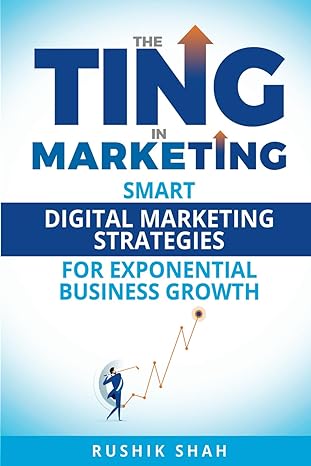
Exploring Third-Party API Developers
At Nexonta Technologies Inc, we view Third-Party API Developers as integral partners in our mission to streamline web development and enhance online marketing strategies. With over 20 years in the tech industry, our experience underscores the importance of these developers in creating platforms that are both innovative and efficient. API developers extend the capabilities of applications by connecting them to valuable external services--think Google Maps or Twitter integration.
A third-party API can transform a basic web application into a dynamic resource hub, offering users real-time data and interactive features. This is critical for brands that want to stay ahead of digital trends and provide their audiences with top-notch experiences. In our work, we've seen firsthand how integrating these APIs can lead to higher engagement and satisfaction.
Benefits of Third-Party APIs for Developers
Utilizing third-party APIs offers several advantages. Firstly, they save time. By relying on pre-built solutions, developers can reduce the hours spent coding from scratch. This allows them to focus on more strategic tasks such as improving user experience or enhancing security practices.
Another benefit is scalability. APIs enable applications to handle more extensive operations without performance degradation. This is particularly important in today's fast-paced digital market where user expectations are constantly evolving. The ability to scale efficiently can make or break a product's success.
- Improved time management
- Seamless scalability
- Enhanced application functionality
- Access to cutting-edge features
How to Work with Third-Party API Developers
Successfully collaborating with Third-Party API Developers involves several key steps. Firstly, research is crucial. Familiarize yourself with the APIs available in your domain and identify those that align with your project goals. Next, establish clear communication channels with API developers. This ensures you can address technical issues promptly and efficiently.
Adopt an agile approach to development by integrating APIs in iterative phases. Start small, test performance, and scale as needed. Finally, prioritize security; ensure that any data transmitted via third-party APIs is protected through encryption and adheres to industry standards.
- Conduct thorough research on available APIs
- Maintain open communication with API teams
- Implement in stages and test continuously
- Prioritize security and data protection
What to Expect from Third-Party API Developers
When engaging Third-Party API Developers, you can expect them to offer robust support and regular updates. Expect their APIs to come with comprehensive documentation, which is essential for effective integration. Troubleshooting guides and developer forums also enhance usability by assisting teams in overcoming potential roadblocks during implementation.
API Developers should also provide updates to comply with technological advancements and security protocols. It's vital that integrated solutions remain current with industry standards to ensure optimal functionality.
Why Are Third-Party API Developers Crucial?
Third-Party API Developers are essential because they allow for rapid innovation. By leveraging their expertise, companies can integrate sophisticated technologies without significant upfront investment in new infrastructure or extensive training. This accessibility levels the playing field, enabling businesses of all sizes to compete effectively.
In sum, collaborating with Third-Party API Developers facilitates a more agile, responsive approach to technology adoption, aligning with Nexonta Technologies Inc's commitment to fostering efficient, impactful solutions for our clients.

The Value of API Integration Services in Modern Business
At Nexonta Technologies Inc, we understand the critical importance of API Integration Services for today's businesses. These services allow disparate software applications to communicate efficiently, enabling seamless data exchange. With my two decades of experience in the industry, I've witnessed firsthand how API Integration Services can revolutionize operations by eliminating repetitive manual tasks and enhancing workflow automation.
Businesses leverage API Integration Services to unify their tech stacks, ensuring that data flows without interruption. This integration supports a wide range of functions, from CRM systems to marketing platforms, thereby driving productivity and boosting revenue. At Nexonta, we prioritize creating robust frameworks that ensure all parts of your digital ecosystem work harmoniously.
Nexonta's Expertise in API Integration Services
Our team at Nexonta is adept at implementing API Integration Services that are tailored to our clients' specific needs. Utilizing platforms like WordPress and PHP, we develop solutions that not only meet immediate business objectives but also adapt to future growth. By focusing on simplicity and user-friendly design, we ensure our integrations enhance usability without overwhelming users.
We have developed integrations for social media campaigns on platforms like Facebook and Instagram. This experience allows us to provide solutions that are not only technically proficient but also creatively aligned with marketing goals. By ensuring that API Integration Services align with our client's brand strategy, we help deliver consistent and engaging customer experiences.
What Steps Are Involved in API Integration Services?
Implementing API Integration Services requires a strategic approach. Here are the key steps involved:
- Identify the Business Needs: Determine which systems require integration and why it is beneficial.
- Design the Integration Framework: Outline the architecture and interaction between APIs.
- Connect and Configure: Link APIs to facilitate data exchange, customizing settings as needed.
- Test the Integration: Conduct thorough testing to ensure functionality and resolve any issues.
- Monitor and Optimize: Continuously assess the integration's performance and make necessary adjustments.
These steps provide a blueprint for successful implementation, ensuring that API Integration Services deliver value.
How Do API Integration Services Enhance Business Operations?
API Integration Services offer numerous advantages that extend beyond mere operational efficiency. By automating routine processes, businesses can allocate resources to more strategic initiatives. This not only optimizes labor but also boosts data accuracy, reducing errors and discrepancies across systems.
Additionally, API Integration Services support scalability. As businesses grow, their tech requirements evolve; having adaptable integrations ensures that businesses can seamlessly incorporate new applications and services. This flexibility is crucial in staying competitive in an ever-changing digital landscape.
Furthermore, effective API integration fosters a collaborative environment, enabling teams to access real-time data and insights. This transparency leads to more informed decision-making and enhances overall business agility.
What Are the Common Challenges of API Integration Services?
Implementing API Integration Services is not without its challenges. One common issue is data incompatibility, which can arise when integrating systems with different data structures. Overcoming this requires a deep understanding of each system's data schema and the ability to map these effectively.
Security is another significant concern. APIs can be vulnerable to unauthorized access and data breaches if not properly secured. Implementing encryption and authentication protocols is essential to safeguard sensitive information.
Lastly, maintaining API Integration Services can be resource-intensive. Regular updates and performance monitoring are necessary to ensure continued efficiency and address any emerging issues. At Nexonta, we offer dedicated maintenance support as part of our integration services to mitigate these challenges.
The Significance of API Development and Integration
In my 20+ years at Nexonta Technologies Inc, I've witnessed firsthand how API Development and Integration has transformed digital landscapes. APIs, or Application Programming Interfaces, act as bridges, enabling seamless communication between disparate software systems. This integration is not just a technical necessity; it's a strategic move to enhance business agility and operational efficiency.
Our team has harnessed API Development and Integration to create robust platforms that connect diverse tools, from social media networks to CRM systems. By weaving APIs into our web solutions, we've elevated user experiences and streamlined workflows across various industries.
How is API Development and Integration Implemented?
Successfully executing API Development and Integration involves several key steps, each crucial to ensuring optimal performance and compatibility.
- Identify Integration Needs: Begin by pinpointing the software systems that need to communicate.
- Choose the Right API: Select an API that aligns with your technical requirements and business goals.
- Develop the API: Craft the API using a preferred programming language, ensuring it meets security and scalability standards.
- Test Thoroughly: Deploy comprehensive testing to ensure the API functions as expected and integrates seamlessly.
- Deploy and Monitor: Once integrated, continuously monitor the API for performance and troubleshooting purposes.
What Challenges are Faced in API Development and Integration?
Implementing API Development and Integration comes with its share of challenges. One major hurdle is ensuring data security. It's imperative to incorporate secure protocols like SSL and OAuth2 to protect data during transfer. Another challenge is maintaining system compatibility, as APIs interact with different platforms and languages.
At Nexonta Technologies Inc, we've addressed these challenges by adhering to industry standards and leveraging our extensive experience in web development and programming. By doing so, we ensure that our APIs remain resilient and adaptable to technological advancements.
The Future of API Development and Integration
As we look to the future, the role of API Development and Integration is set to grow even more critical. The rise of the Internet of Things (IoT) and Artificial Intelligence (AI) technologies demands more sophisticated API solutions. APIs will need to be more intelligent, capable of evolving with these technologies to offer predictive insights and automation.
Nexonta Technologies Inc is committed to staying at the forefront of these trends, constantly innovating to provide cutting-edge solutions that leverage API capabilities. Our strategic approach to API Development and Integration ensures our clients remain competitive in a rapidly changing digital environment.
- Increased automation through AI-driven APIs
- Enhanced security features in API design
- Greater integration with IoT devices
- Support for diverse programming languages
Benefits of API Development and Integration
API Development and Integration offers numerous benefits that go beyond just technical connectivity. First and foremost, it facilitates real-time data exchange, empowering businesses to make informed decisions swiftly. Additionally, APIs reduce redundant tasks by automating processes, leading to increased productivity.
Moreover, APIs expand a company's reach by integrating third-party functionalities, enabling new services without the need for extensive in-house development. At Nexonta Technologies Inc, we've seen our solutions provide significant return on investment (ROI) as clients utilize API integrations to enhance their product offerings and customer service.
By embracing API Development and Integration, businesses can unlock new opportunities for growth and innovation, positioning themselves as leaders in the digital age.
What role do Third-Party API Developers play in modern web development?
Third-Party API Developers are akin to the unsung heroes of modern web development. They expand the potential of applications beyond the original developer's capabilities. By enabling connections to external services, like integrating Google Maps into a delivery app or Twitter feeds into a user dashboard, they vastly enhance the functionality of a website or app. This enables businesses--like ours at Nexonta Technologies Inc--to offer enriched experiences without starting from scratch. Imagine being able to provide weather updates within an app without having to build a meteorological system yourself. That's the kind of magic Third-Party API Developers bring to the table.
Have you ever wondered how your favorite apps integrate so many different features seamlessly? That's often thanks to Third-Party APIs. What features would you like to see integrated into your business solutions?
What are the main advantages for developers when using Third-Party APIs?
The primary benefits of using Third-Party APIs are time and resource savings, which are invaluable in a fast-paced development environment. By leveraging pre-built APIs, developers can skip the lengthy process of building complex functionalities from the ground up. This allows for a focus on refining user experience and improving security measures. Imagine a chef who uses ready-made sauces for complex recipes, allowing them to focus on perfecting the main dish's flavors. Another advantage is scalability; APIs handle increased loads without affecting performance, which is crucial for applications expecting growth. Do you see the potential for Third-Party APIs to streamline your operations?
How can we effectively collaborate with Third-Party API Developers to ensure successful integration?
To collaborate effectively with Third-Party API Developers, start with thorough research to identify APIs that align with your project goals. Clear communication is critical, akin to establishing open dialogue with a partner on a team project where each party knows the other's strengths and challenges. Regular updates and understanding troubleshooting processes are essential. Best practices include adopting an agile approach, starting small, and scaling based on performance. Prioritizing security by ensuring data protection through strong encryption is also paramount. Have you faced any challenges in collaborating with API Developers in past projects? How did you overcome them?
What can we expect from Third-Party API Developers regarding support and updates?
When working with Third-Party API Developers, expect robust support in the form of comprehensive documentation and regular updates. Just like a reliable guidebook can help you navigate an unfamiliar city, documentation is crucial for understanding how to integrate and utilize APIs effectively. Furthermore, active developer forums provide a platform to resolve any challenges you may encounter. Continuous updates are necessary to keep up with technological advancements and security protocols, ensuring that your integrations remain current. Have you considered how documentation quality can impact your project's integration success?
Why are Third-Party API Developers crucial to web development and business growth?
Third-Party API Developers are indispensable because they enable rapid innovation and technology adoption with minimal investment. They level the playing field, allowing businesses of all sizes to access cutting-edge capabilities without developing infrastructure in-house. Think of them as specialized architects who help build extensions to a house, enabling it to accommodate new functions and residents. At Nexonta Technologies Inc, we've seen clients transform through these partnerships, achieving agility and responsiveness in meeting market demands. How might your business benefit from the expertise provided by API Developers?
What is the value of API Integration Services in today's business environment?
API Integration Services have grown essential as they allow different software systems to communicate seamlessly, improving workflow efficiency by eliminating manual data entry and reducing errors. By integrating disparate platforms--from CRM systems to marketing tools--businesses achieve a unified tech stack that promotes productivity and revenue growth. At Nexonta, we focus on creating frameworks that ensure data flows without interruption, much like a well-constructed bridge allows for smooth passage between two points. How do you see API integrations improving the aspects of your business processes?
What sets Nexonta Technologies Inc apart in providing API Integration Services?
Our expertise at Nexonta Technologies Inc lies in creating tailored API Integration Services that meet specific business needs while anticipating future growth. We harness platforms like WordPress and PHP to develop solutions that are both functional and adaptable. Our experience with social media integrations enables us to align technical proficiencies with creative marketing goals, ensuring that API solutions are both technologically sound and strategically impactful. Imagine having a wardrobe tailor-made not only to fit you perfectly now but also to accommodate style changes in the future. That's how we approach API integrations. Would you like to explore how tailored integrations could benefit your business operations?
What are some common challenges faced during API integration, and how can they be addressed?
Common challenges in API integration include data compatibility issues, security concerns, and maintenance demands. Data incompatibility often occurs when trying to integrate systems with diverse data structures. To address this, understanding each system's data schema is vital, enabling effective mapping. Security is another critical factor, as improper protocols can lead to unauthorized access. Implementing robust encryption and authentication measures is essential. Additionally, maintaining integrations requires regular updates and performance monitoring--a continuous effort like tuning an instrument to ensure harmonious performance. How do you handle data security and compatibility in your current technical solutions?
What does the future hold for API Development and Integration?
The future of API Development and Integration is bright, with increasing demand for sophisticated solutions driven by AI and IoT technologies. APIs will become more intelligent, offering predictive insights and greater automation capabilities. Enhanced security and support for diverse programming languages are also on the horizon. At Nexonta Technologies Inc, we remain committed to innovation, ensuring that our solutions evolve alongside technological advancements. Picture an orchestra where each section syncs perfectly to create a moving performance--that's what future APIs aim to achieve across interconnected platforms. How do you envision leveraging future API advancements to enhance your business capabilities?
Resources
- ProgrammableWeb - A comprehensive resource for APIs, providing news, analysis, and directories of available APIs.
- MDN Web Docs - Mozilla's developer network offers in-depth documentation on web APIs and related technologies.
- W3C - Widgets - The World Wide Web Consortium's standards for web widgets, including APIs for enhancing web functionality.
- IBM Cloud - API - IBM's insights on API development, integration, and best practices for leveraging APIs in modern business.
- Oracle API Platform - Oracle's platform for API management, offering resources on API design, security, and deployment.








